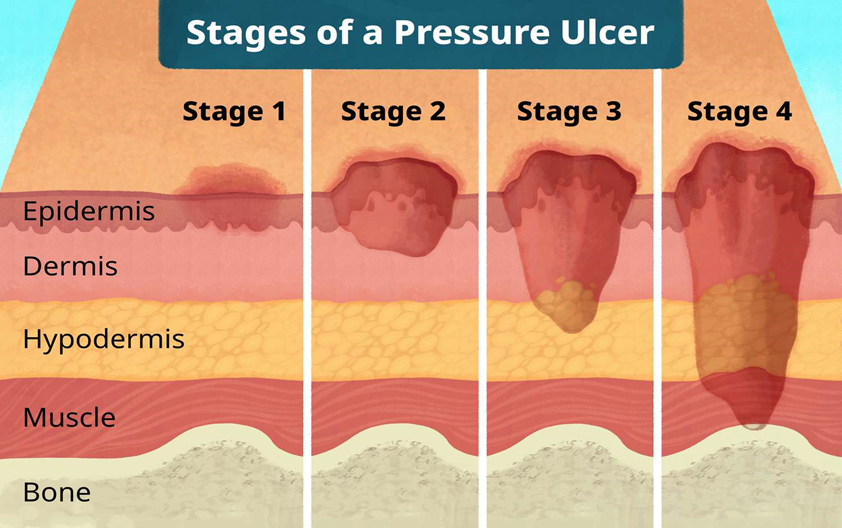A nurse is caring for an elderly client diagnosed with a urinary tract infection (UTI). The family reports an abrupt onset of altered mental status, disorientation, and intermittent hallucinations. The nurse would identify these signs to be consistent with which sensory alteration?
Sleep deprivation
Normal signs of aging
Dementia
Delirium
The Correct Answer is D
Choice A Reason:
Sleep deprivation is incorrect. While sleep deprivation can cause confusion and disorientation, it is less likely to cause abrupt onset of altered mental status and hallucinations. Sleep deprivation typically results in gradual cognitive decline and fatigue rather than sudden changes.
Choice B Reason:
Normal signs of aging is incorrect. Normal aging can involve some cognitive decline, but it does not typically cause sudden and severe symptoms like hallucinations and significant disorientation. These symptoms are more indicative of an acute condition.
Choice C Reason:
Dementia is incorrect. Dementia involves a gradual decline in cognitive function over time and does not typically present with sudden onset of symptoms. While dementia can include hallucinations and disorientation, these symptoms usually develop progressively.
Choice D Reason:
Delirium is correct. Delirium is characterized by a sudden onset of confusion, disorientation, and changes in mental status. It is often triggered by acute medical conditions such as infections, including UTIs. Elderly patients are particularly susceptible to delirium, which can include symptoms like hallucinations and severe confusion.
Nursing Test Bank
Naxlex Comprehensive Predictor Exams
Related Questions
Correct Answer is C
Explanation
Choice A Reason:
Place suction equipment at the bedside is incorrect. While having suction equipment available is important for emergency situations, it does not directly prevent postoperative pulmonary complications. Suction equipment is used to clear the airway if the client has difficulty breathing or if there is an obstruction.
Choice B Reason:
Administer a prophylactic expectorant is incorrect. Prophylactic expectorants can help in managing secretions, but they are not the primary intervention for preventing postoperative pulmonary complications. The main goal is to promote lung expansion and prevent atelectasis.
Choice C Reason:
Encourage the use of an incentive spirometer is correct. Using an incentive spirometer encourages deep breathing and lung expansion, which helps prevent atelectasis and other postoperative pulmonary complications. It is a key intervention in postoperative care to maintain optimal lung function.
Choice D Reason:
Perform range of motion exercises is incorrect. While range of motion exercises are important for preventing musculoskeletal complications and promoting circulation, they do not directly prevent pulmonary complications. The focus for pulmonary health is on lung expansion and clearing secretions.
Correct Answer is C
Explanation
Choice A Reason:
Alginate dressings are typically used for wounds with moderate to heavy exudate because they are highly absorbent. Stage I pressure ulcers do not usually produce exudate, making alginate dressings unnecessary and inappropriate for this type of wound.
Choice B Reason:
Hydrogel dressings are designed to provide moisture to dry wounds and are more suitable for wounds with minimal to no exudate. While they can be used for stage I pressure ulcers, they are not the most common choice as these ulcers do not typically require additional moisture.
Choice C Reason:
Transparent dressings are ideal for stage I pressure ulcers because they protect the skin from friction and shear while allowing for continuous observation of the wound. These dressings maintain a moist environment, which is beneficial for healing, and are easy to apply and remove without causing additional trauma to the skin.

Choice D Reason:
Wet-to-dry gauze dressings are generally used for debridement of necrotic tissue in more advanced wounds. They are not suitable for stage I pressure ulcers, which do not have necrotic tissue and do not require debridement.
Whether you are a student looking to ace your exams or a practicing nurse seeking to enhance your expertise , our nursing education contents will empower you with the confidence and competence to make a difference in the lives of patients and become a respected leader in the healthcare field.
Visit Naxlex, invest in your future and unlock endless possibilities with our unparalleled nursing education contents today
Report Wrong Answer on the Current Question
Do you disagree with the answer? If yes, what is your expected answer? Explain.
Kindly be descriptive with the issue you are facing.
